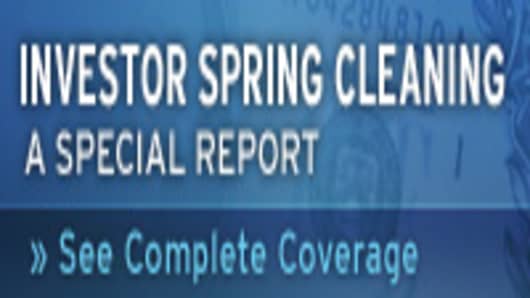Stocks advanced on Thursday after a report showed jobless claims felllast week and banks gained. The market got off to a wobbly start again after three-quarters of retailers reporting chain-store sales this morning missed their targets, dashing hopes that consumers are again digging out their wallets. But a drop in jobless claims helped turn the day around. Read and listen to what experts had to say…
Financial System: Returning to Sense of 'Normalcy'
We’re finally seeing signs the steps taken by the Fed and Treasury are working for the credit market, said Michael Thompson of Standard & Poor’s. He said the real estate values are encouraging and the markets are seeing signs that financial system is returning to a sense of "normalcy."
'U.S. Will Remain #1'
“I don’t think that there’s anything that’s going to threaten the position of the nation as No. 1 in the near future in terms of the international economy,” said Terry Miller, former Ambassador to the UN Economic and Social Council. He also said that China is not a threat, but can help the U.S. increase growth rate.
Getting Closer to Residential Real Estate Bottom
I think everyone’s quite optimistic about the government’s inclusion into of the CMBS into the TALF program, said Barry Sternlicht of Starwood Capital. He said we are closer to the bottom on the residential real estate side and now the focus should be on the commercial side. “But by no means is the real estate market is bottoming—it’s very bad at the moment,” he said.
US Banks Bouncing Back Quicker
According to IMF figures, U.S. banks are halfway through write-downs while European banks are only 20 percent through their write-downs. Julian Pendock from Senhouse Capital said U.S. banks have been more proactive since the credit crunch took hold and are now less risky than their European peers.
‘Defibrillator Worked, but Artery Still Clogged’
Steve Crawford of Centerview Partners described the current economic situation as the “defibrillator worked, but the artery is still clogged.” “When you look at the things that are going to drive the economy long term — they haven’t been fixed,” he said. He has an overall bearish outlook for the economy.
Crude Oil at $70-$80 By Year-End
Warren Meyers of Walter J. Dowd said he expects crude oil to trade at $70 to $80 per barrelat the end of the year. Although this may dampen consumer spending because of higher gas prices, it will not be a bad level for oil service companies, he said.
Slideshow:
One System Regulator For All?
Tim Ryan of SIFMA proposed the idea of adopting a systemic regulator with veto power over other primary regulators so that “we have one single voice.” Will this idea work and is it feasible? Click to watch the full interview.



